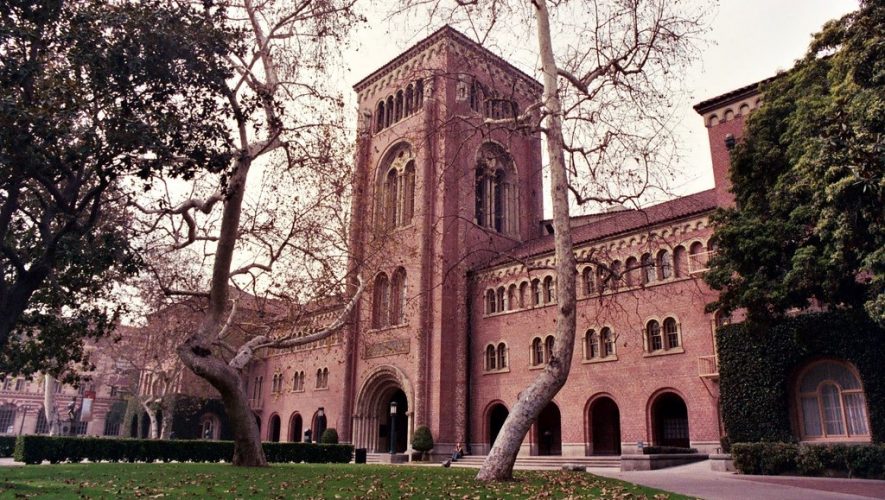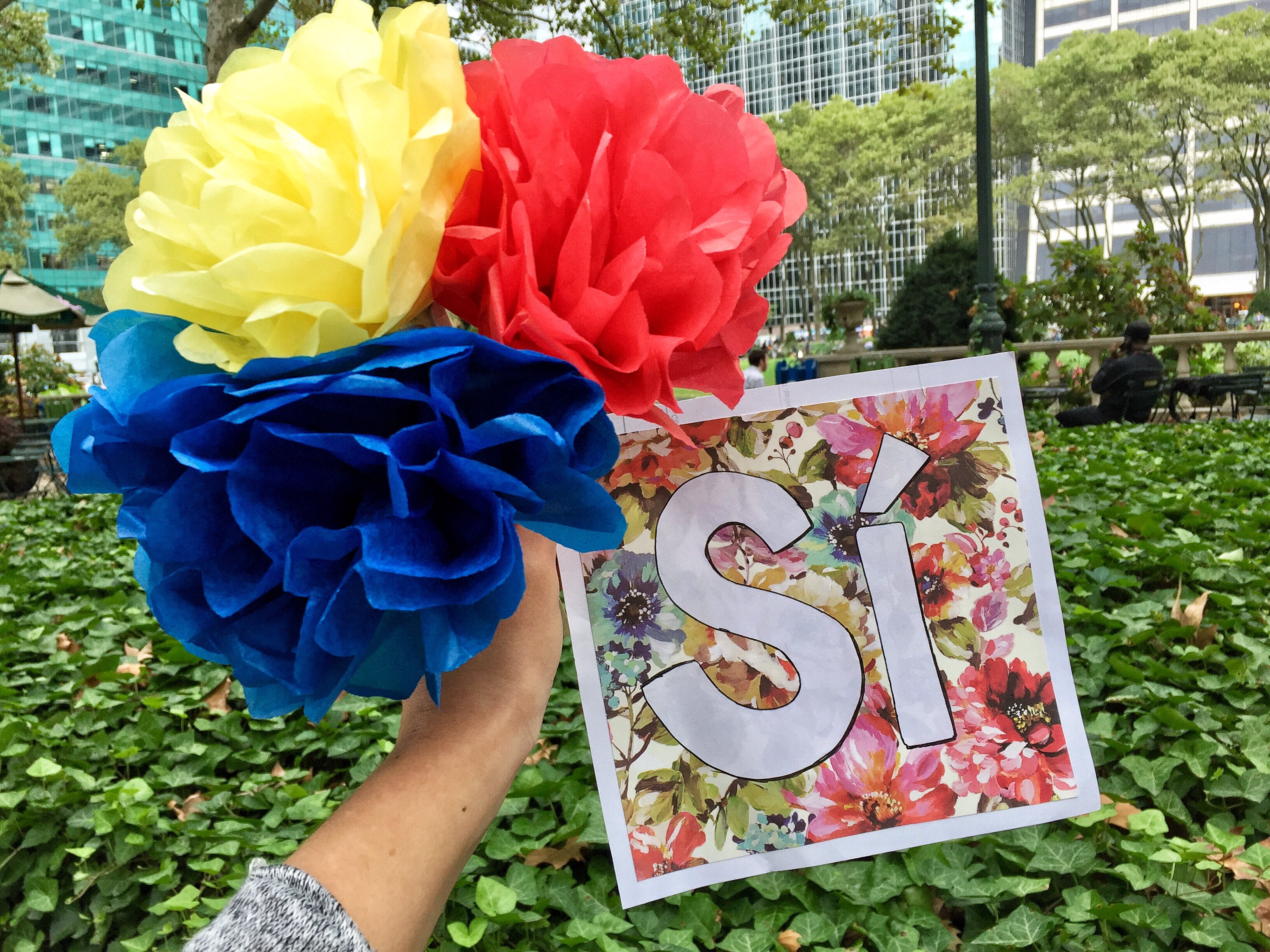Photo by greatdegree.
On August 20, University of Southern California (USC) business professor Greg Patton lectured to his “Communication for Management” class on presenting information effectively. He explained that filler words are culturally specific and based on one’s native language. Patton stated: “like in China, the common word was ‘that, that that that that,’ so in China it might be ‘那个, 那个那个那个.’”
The next day, a group of students who identified themselves as “Black MBA Candidates c/o 2020” sent an email to the USC administration stating that Patton offended the class’s Black members through his use of “that” in Mandarin Chinese. Pronounced “nàh-guh” or “nàe-guh”—depending on one’s accent—the term can sound like the English n-word. In response, USC removed Patton from the course.
USC’s response was inappropriate, especially given the complaint’s flaws. National Review and CNN claim to have a copy of the email, though neither could verify who wrote it. The students claimed that their Chinese classmates confirmed that Patton mispronounced the phrase, and stated that the word commonly has a pause between its syllables. The students added that they lived in China and have taken Chinese language courses at several colleges. To them, the phrase is “always identified as a phonetic homonym and a racial derogatory term” and thus should be used carefully. The students also claimed that Patton would stop the Zoom recording before saying 那个 and resume it afterward, an allegation that was later disproved by a video of the incident.
It is understandable why these students were taken aback by the professor’s words. While Patton did explain beforehand that the phrase was a common Chinese filler word, he did not specify that it may sound like the n-word, especially to those unfamiliar with the language; perhaps in doing so, he could have avoided this backlash.
Patton specifically included the Chinese filler word—given by several international students throughout the years—to be more inclusive. He aimed to include many diverse leadership examples to “enhance communication and interpersonal skill in our global workplace.” He was also partially inspired by his own experience working in Shanghai.
This isn’t the first time that this sort of misunderstanding has happened. In 2016, a Black man slapped a Chinese man in Guangzhou after mistaking 那个 for the n-word in passing. This April, two men in Taiwan nearly fought outside of a restaurant due to this misunderstanding. In the US, Chinese basketball star Yao Ming noted that the phrase nearly got his interpreter in trouble with Yao’s American colleagues when the interpreter uttered it to him in the locker room.
That said, there is no pause in between the syllables for “that.” As a Mandarin Chinese speaker, I can confirm that the greatest indicator of the phrase’s pronunciation is accent. Because I learned Mandarin from my studies in Shanghai and from conversing with my mother—a Shanghai native—I pronounce the phrase as “nàh-guh,” as do many Mandarin speakers from Southern China. In Northern China, the phrase is often pronounced “nàe-guh,” which is closer to Patton’s pronunciation. Yale professor Taisu Zhang confirmed that Patton pronounced it correctly, as did nearly one hundred alumni of USC Marshall School of Business, most of whom hail from Chinese-speaking regions.
Colleagues at USC have confirmed this report. All I can say is, the professor’s pronunciation of the Chinese phrase “neige” was accurate, and his use of it as an example of filler language was linguistically appropriate. It’s a *very* common phrase. https://t.co/i9c0NELQkI
— Taisu Zhang (@ZhangTaisu) September 4, 2020
Student outrage against Patton is unjustified. It assumes that speakers of Mandarin Chinese or any other language should watch what they say, lest they accidentally insult someone who speaks only English. This wrongly asserts the superiority of English.
Patton is not the only person condemned for speaking a different language. US radio stations censored Korean boy band BTS’s 2018 song “Fake Love” because the Korean words for I (내가) and informal “you” (니가) are pronounced as “ne-ga” and “ni-ga,” respectively. Stations also censored Korean girl group 2NE1’s 2014 song “I Am The Best” for the same reason. While it’s understandable that US radio stations were concerned about backlash—which could endanger their radio license—this censorship misleads the public into believing that Korean pop groups feature racial slurs in their songs.
This conflation is also present in the allegations against Patton. The students irrationally claim that because there are over ten thousand characters in written Chinese, using 那个—“a clear synonym with this derogatory N-Word term”—is hurtful and intolerable to the USC Marshall community. To them, Patton’s use indicated his negligence and disregard for his Black students.
那个 is not synonymous with the n-word; different languages do not share the same slurs. Furthermore, words or phrases in a language are not always interchangeable. Patton was correct when he stated that filler words are culturally specific—people who speak English tend to use “um” or “like,” while those who speak Spanish may use “como” or “este.” It just so happens that China’s common filler word is “that.”
For students studying business—who may deal with business partners who speak different languages—one would think that these students would be more understanding of foreign languages and their differences. As UCLA professor Eugene Volokh argues, students must control their impulses to censor if they wish to shape this diverse world. A university must encourage this maturation.
USC’s response was even more excessive than the student outrage Patton endured. In an email to students, Dean Geoff Garrett stated: “Professor Greg Patton repeated several times a Chinese word that sounds very similar to a vile racial slur in English . . . It is simply unacceptable for faculty to use words in class that can marginalize, hurt and harm the psychological safety of our students. We must and we will do better.” Garrett reassured the students that Patton had been removed from the course, effectively suspending him.
A month later, Garrett confirmed that Patton did not violate university policy, further illuminating how rash and ill-judged the suspension was. The university condemned and punished Patton without investigating his actions. Essentially, they treated him as though he had attacked his students with the n-word when all he did was speak another language.
There is nothing inherently hurtful about the Chinese language, but USC’s statement implies otherwise. The Chinese language exists on its own, independent of English—it is illogical to judge Mandarin by English rules. Unlike the n-word, 那个 does not exist to oppress Black people. Censoring languages marginalizes the people who speak it. USC has made their position clear—the feelings of English speakers matter more than the feelings of Mandarin speakers.
After this incident, USC also stated its commitment to “a culture of respect and dignity where all members of our community can feel safe, supported and can thrive.” But that contradicts the university’s disregard for Mandarin and its community members who speak it. Suspension should be used only for serious threats, and Patton’s actions did not present any danger to students.
Removing a professor from a course—effectively suspending them, though some universities argue otherwise—implies severe negative judgment and harms their standing. It can create a disproportionately prejudicial atmosphere, one that is undeserved given the professor’s record. USC’s hasty decision resulted in an unfair punishment and could negatively impact anyone who speaks a foreign language, as it shows that they cannot be safe and supported.
USC’s reaction also cheapens the discussion around real challenges to diversity and inclusion on college campuses. USC has numerous complaints about racism on campus, many of which are institutional problems that require meaningful work to dismantle. But rather than investigate any other complaint about racism, USC chose to suspend Patton, using him as a symbol of their commitment toward anti-racism. At best, USC’s response is performative.
View this post on Instagram
At worst, it is downright racist. The university essentially singled out Mandarin as an inappropriate language to use on campus. This reaction can legitimize the Sinophobia that has already increased on campuses due to COVID-19.
USC’s response does not resolve any actual complaint about racism on campus. Instead, it actively drives a wedge between two minority groups—akin to how the model minority myth pits Asians against other racial minorities. This allows White Americans to avoid responsibility for the damage that institutionalized racism inflicts. In USC’s case, they pit Chinese students against Black students by implying that something is inherently racist about Mandarin; through this “us versus them” mentality, they absolve themselves of any responsibility.
Instead of cherry-picking complaints that are easy to resolve and feigning solidarity, USC and other universities need to create concrete plans on how to address racism and free speech issues. Without clear policies on what is and isn’t appropriate behavior, universities have a hard time remaining firm on their position. They need to determine how they want to balance the fine line between “freedom from” and “freedom to” by determining how much freedom of speech is allowed on campus. If foreign phrases that sound like English slurs are banned on campus, does the same apply to English phrases that sound offensive in other languages?
Actual slurs are racist; foreign words that sound like slurs are not. USC should address other complaints of racism on campus instead. There are multiple instances in which students have used the n-word to describe their Black peers with no repercussions. Black students have complained that academic advisors, who enthusiastically advise White students on law school and scholarships, discourage Black students with similar specs from applying to these programs. They have also complained about racial profiling, as USC’s Department of Public Safety often assumes Black students do not attend the school; as such, Black students must show ID more often than non-Black students. And these are just the tip of the iceberg regarding Black students’ grievances against USC.
USC professor Ruben Davila argues that there are two conflicting principles in Patton’s case: academic freedom versus diversity and inclusion. And “in this particular circumstance, there is no academic principle at stake important enough to suppress the importance of diversity and inclusion.”
But I disagree.
This isn’t a matter of academic freedom versus diversity and inclusion. It’s about who universities choose to include in their mission for diversity. When Patton was suspended, whose concerns were included? Whose were excluded?
Davila states that we must acknowledge everyone in the community, give them a voice, hear their opinions, and value their thoughts. And he’s right, but USC’s response did not follow this principle; it showed that the administration does not value everyone in the community. It is not really diversity and inclusion if universities actively exclude one minority—and their language and culture—for the sake of another.
I don’t know how to solve racism on college campuses, but I do know that USC went too far in Patton’s case. Patton should never have been removed from the classroom and his actions should not have been denounced in an email to the student body. In a poor attempt to protect and include one minority population on campus, USC excluded another.
USC should have used this opportunity to open a dialogue between students and professors. Instead, they stifled the discussion by showing that even imagined slights will result in harsh consequences. Chinese students—and by extension any student who speaks a foreign language—now know that their language is at the mercy of the administration. This hasn’t improved the lives of Black students; it will only hinder the acceptance of foreign languages and the people who speak them, challenging any progress toward diversity and inclusion.



